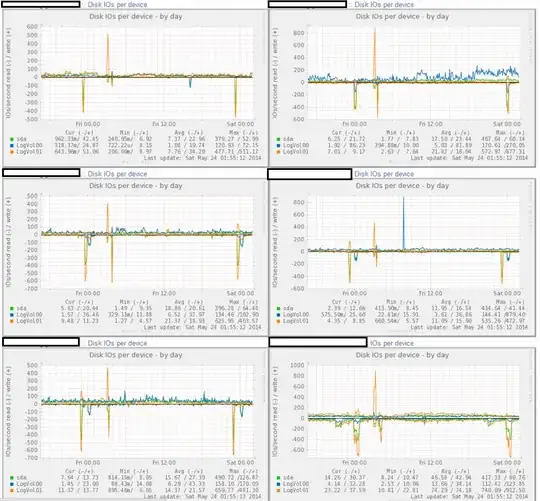My first thought is: access times.
Unless you've disabled them (or your distro has, but pretty sure RHEL6/CentOS6 don't by default), Linux will by default maintain access timestamps on all files and directories. That means any time the OS reads a file, even just a stat, it will generate a write to update the timestamp.
Try mounting LogVol00 and/or LogVol01 with the "noatime" mount option.
Additionally, Apache access attempts almost surely generate writes (access_log, possibly error_log), but may not generate reads, because of the Linux VFS cache intercepting and serving those out before they hit the disk.
With MySQL, check to see if the general query log or slow query log are enabled. That's one way that things that should only be reads might end up generating unexpected writes. MySQL tuning is a big topic in itself, so I'll just add- look over your MySQL settings... internal cache hit rates, etc. Could be it's hitting disk for things like temp tables more than it should.
Failing all that, you might check that the app running on these isn't doing something unusual. For example, I've seen web apps that do things like store analytical data in the database- convenient, but can easily turn read-centric workloads into write-centric ones.
